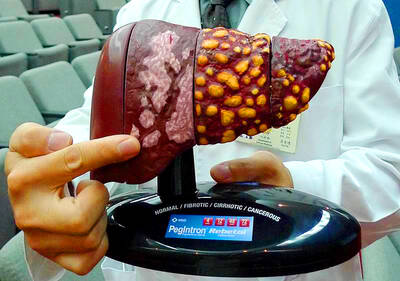Anticipating a sharp rise in the unemployment rate at the end of the year, President Ma Ying-jeou (馬英九) said yesterday the government would soon roll out a plan to address the problem.
He did not elaborate nor give a timeline, but said he had been in close contact with Premier Liu Chao-shiuan (劉兆玄) in the past two days as “they have decided to tackle the problem of unemployment.”
Ma made the remarks while addressing winners of this year's National Golden Awards for Architecture at the Presidential Office yesterday morning.
Government statistics put unemployment at a five-year high of 4.37 percent last month. During the election campaign, Ma pledged to keep the unemployment rate at below 3 percent per year. Realizing that it would be hard to deliver on his promises, he later said his “6-3-3” campaign pledge was unlikely to be realized anytime soon, but he hoped it could be achieved by 2016 — at the end of two terms in office.
The “6-3-3” economic policy refers to an annual economic growth rate of 6 percent, annual per capita income of US$30,000 by 2016 and an unemployment rate of less than 3 percent.
Presidential Office Spokesman Wang Yu-chi (王郁琦) said yesterday the Executive Yuan had approved a four-year job creation project early this month, but that Ma hoped to see the plan expanded.
Ma did not give details, however, on how it should be expanded, Wang said, adding that “the president totally respects the plan of the Executive Yuan.”
The objective of the four-year job creation project would be to lower the unemployment rate to 3 percent by 2012. Under the plan, the government hopes to create more than 191,000 jobs from next year to 2012, with 52,000 jobs next year, 48,000 in 2010, 46,000 in 2011 and 44,000 in 2012.
Calling the global economic crisis a “once-in-a-century credit tsunami,” Ma said it was hard to say it was the lowest point.
In addition to creating more jobs, Ma said his government had mapped out measures aimed at increasing investments and public consumption.
With prices of raw materials falling, now is the best time to invest in public infrastructure projects, Ma said.
The government has earmarked budgets for the “i-Taiwan 12 infrastructure project” and has proposed a four-year, NT$420 billion (US$13 billion) public investment project.
While the Executive Yuan is drawing up a plan to boost growth in the property market, Ma said real estate companies must make efforts to “save themselves,” as many still complain about high property prices in Taipei.
With the government set to issue NT$3,600 consumer vouchers to all Taiwanese, Ma encouraged the public to spend, saying that distributing the vouchers on Jan. 18 before the Lunar New Year was good timing.
“We would like to see those who have money to spend as much as they can, while those who don't have much to use the consumer vouchers to spend,” he said. “We hope it will help the retail industries and small businesses.”
Ma said the economy contracted in the third quarter, but that there was a chance it could rebound in the second quarter next year.

The Taipei Summer Festival is to begin tomorrow at Dadaocheng Wharf (大稻埕), featuring four themed firework shows and five live music performances throughout the month, the Taipei Department of Information and Tourism said today. The festival in the city’s Datong District (大同) is to run until Aug. 30, holding firework displays on Wednesdays and the final Saturday of the event. The first show is scheduled for tomorrow, followed by Aug. 13, 20 and 30. To celebrate the 30th anniversary of Disney Pixar's movie Toy Story, the festival has partnered with Walt Disney Co (Taiwan) to host a special themed area on

Aftershocks from a magnitude 6.2 earthquake that struck off Yilan County at 3:45pm yesterday could reach a magnitude of 5 to 5.5, the Central Weather Administration (CWA) said. Seismological Center technical officer Chiu Chun-ta (邱俊達) told a news conference that the epicenter of the temblor was more than 100km from Taiwan. Although predicted to measure between magnitude 5 and 5.5, the aftershocks would reach an intensity of 1 on Taiwan’s 7-tier scale, which gauges the actual effect of an earthquake, he said. The earthquake lasted longer in Taipei because the city is in a basin, he said. The quake’s epicenter was about 128.9km east-southeast

BE CAREFUL: The virus rarely causes severe illness or death, but newborns, older people and those with medical conditions are at risk of more severe illness As more than 7,000 cases of chikungunya fever have been reported in China’s Guangdong Province this year, including 2,892 new cases last week, the Centers for Disease Control (CDC) yesterday said it is monitoring the situation and considering raising the travel notice level, which might be announced today. The CDC issued a level 1 travel notice, or “watch,” for Guangdong Province on July 22, citing an outbreak in Foshan, a manufacturing hub in the south of the province, that was reported early last month. Between July 27 and Saturday, the province reported 2,892 new cases of chikungunya, reaching a total of 7,716

STAY VIGILANT: People should reduce the risk of chronic liver inflammation by avoiding excessive alcohol consumption, smoking and eating pickled foods, the physician said A doctor last week urged people to look for five key warning signs of acute liver failure after popular producer-turned-entertainer Shen Yu-lin (沈玉琳) was reportedly admitted to an intensive care unit for fulminant hepatitis. Fulminant hepatitis is the rapid and massive death of liver cells, impairing the organ’s detoxification, metabolic, protein synthesis and bile production functions, which if left untreated has a mortality rate as high as 80 percent, according to the Web site of Advancing Clinical Treatment of Liver Disease, an international organization focused on liver disease prevention and treatment. People with hepatitis B or C are at higher risk of